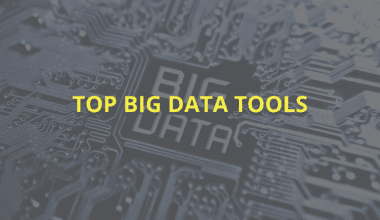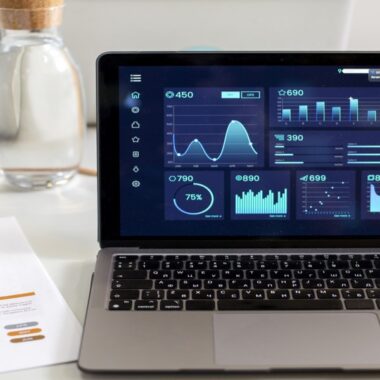Summary: This guide demystifies the roles of Business and Data Analysts, highlighting their distinct responsibilities and overlapping skills. It offers insights into essential skills, salary expectations, and career progression in each field. It further provides a practical framework for choosing the path that aligns with your strengths and interests, along with actionable steps to get started.
Introduction
In today’s data-driven world, both Business Analysts and Data Analysts are essential in helping organisations make well-informed decisions. As industries rely more on data to inform strategies, these roles have become indispensable for analysing trends, improving operations, and fostering growth.
While both roles contribute significantly to decision-making, they do so in distinct ways, catering to different aspects of business and data management. This blog will highlight the key difference between the two:
Key Takeaways
- Data Analysts extract insights; Business Analysts apply them to business needs.
- Both roles need strong analytical skills, but with different focuses.
- Career growth is excellent in both fields, offering diverse pathways.
- Consider your interests and strengths to choose the right role.
- Both roles are in-demand with lucrative salaries.
Business Analyst vs Data Analyst : A Quick Overview
A Data Analyst primarily focuses on working with raw data, extracting insights, and presenting findings through visualisations and reports. Their work revolves around exploring datasets, identifying patterns, and providing actionable insights that guide business strategies.
In contrast, a Business Analyst bridges the gap between business goals and technical solutions. They work closely with stakeholders to understand organisational challenges and propose strategies, often leveraging data insights provided by Data Analysts.
Though these roles share some overlapping responsibilities, they differ in terms of scope and approach. Data Analysts emphasize technical proficiency and data interpretation, while Business Analysts prioritize strategic planning and stakeholder communication. Understanding these differences is essential for businesses and individuals aiming to excel in these fields.
The main difference between a Data Analyst and a Business Analyst is that Data Analysts extract information from data and transform their findings into usable insights, while Business Analysts use data to make strategic business decisions.
Data Analyst Responsibilities
Data Analysts help organisations translate raw and unstructured data and create reports to present data in an appealing way. They may use a storytelling format, charts, graphs, and even dashboards to illustrate data.
Besides, they also identify new sources of helpful data and go above and beyond to understand the solutions companies seek. They do better at finding answers when they know the company’s goals and objectives.
- Data Analysts execute and design databases.
- They help collect valuable data.
- They acquire and maintain the data.
- Data Analysts clean the data to make it understandable.
- They interpret trends from complicated data.
- They are also responsible for communicating the key insights to business leaders and decision-makers.
Business Analyst Responsibilities
Business Analysts are a communication channel between technology and business. They decide and share the strategies and objectives with everyone across the firm, from the management team to the company’s stakeholders.
They have excellent problem-solving skills to approach different problems uniquely and develop relevant solutions. They remain abreast of the latest business tactics and share them with the organisation. This helps shape the business model.
- Business Analysts define the problems and offer solutions for organisations.
- They also spot specific company requirements and communicate them with business stakeholders to alter the existing strategies.
- They evaluate business processes for cost, effectiveness, and other related metrics.
- Preparing helpful recommendations for improving business processes and performance is also the responsibility of a Business Analyst.
- Gather, validate, and document business requirements.
- Analyse commercial data (including budgets and sales results) and estimate costs and savings.
- They create functional specifications for solutions and implement and test these solutions.
How Business Analysts and Data Analysts Overlap
While Data Analysts work more closely with data, Business Analysts focus more on addressing the needs of an organisation and improving business performance.
Despite their distinct roles, Data Analysts and Business Analysts share common ground. Both roles require strong analytical skills, proficiency in SQL and other programming languages, and the ability to interpret data and provide insights.
Both roles also require excellent communication skills to convey findings to stakeholders without a Data Analysis background. They also need to work with cross-functional teams and collaborate effectively.
Essential Skills for Data Analysts: A Deeper Dive
To excel as a Data Analyst, you’ll need a strong foundation in several key areas. These skills allow you to effectively collect, clean, analyse, and interpret data, ultimately providing valuable insights that drive business decisions.
- Data Analysis: Proficiency in data analysis tools and techniques such as SQL, Excel, and data visualisation tools (e.g., Tableau, Power BI).
- Statistical Analysis: Using statistical methods to accurately interpret data.
- Data Manipulation: Skills in data manipulation and querying languages like SQL.
- Data Visualisation: Competence in using data visualisation tools.
Essential Skills for Business Analysts
Business Analysts act as a bridge between business needs and technical solutions. Their role involves understanding business problems, gathering requirements, and proposing solutions that align with the organisation’s strategic goals. To be successful, you need a diverse skill set that encompasses both business acumen and technical understanding.
- Communication And Stakeholder Management: Clear and concise communication is fundamental. Strong interpersonal and consultative skills.
- Analytical and Critical Thinking: Ability to analyse and translate client’s requirements distinctly. Critical thinking helps in assessing multiple options.
- Problem-solving: Developing innovative solutions for operational and strategic changes3.
- Requirements Gathering and Documentation: Ability to gather precise requirements by working closely with stakeholders.
- Decision-Making Skills: Capable of assessing inputs from stakeholders and selecting the right plan of action.
- Business Process Modelling and Improvement: Understanding how processes work and finding ways to enhance them.
- Adaptability: Being adaptable and open to adjusting approaches as project needs change.
Career Growth: Pathways for Data Analysts and Business Analysts
It is not uncommon for those who have worked purely as Data Analysts to move into a Business Analyst role, as it typically broadens their responsibilities and often takes them into a more senior position. Business Analysts also come from the fields of project management, software development, and general management.
Data analytics is a bit more complicated than business analytics because it’s more technical. It uses Python, SQL, and other analytical tools to translate the data.
Choosing the Right Career: Business Analyst vs Data Analyst?
Choosing the right role depends on your interests, strengths, and career goals. Data Analysts thrive on data exploration, statistical analysis, and uncovering insights. They enjoy working with data and finding patterns that can drive business decisions.
On the other hand, Business Analysts excel in understanding business processes, eliciting requirements, and implementing technological solutions to address business challenges.
Consider pursuing a career in Data Analysis if you have a strong mathematical and analytical background, enjoy working with data, and are passionate about uncovering insights.
Business analysis might be the right fit if you possess excellent communication skills, have a keen interest in understanding business needs, and enjoy facilitating stakeholder collaboration.
Conclusion
Business Analysts and Data Analysts play critical roles in organisations, each contributing unique perspectives and skills. Understanding the distinctions between these roles is essential for aspiring analysts and organisations looking to leverage their expertise effectively.
By recognising their specific objectives, skill sets, and collaboration patterns, businesses can harness the full potential of data and technology to drive informed decision-making and achieve business success.
Frequently Asked Questions
Can A Data Analyst Become a Business Analyst And Vice Versa?
Yes, career transitions are possible. A Data Analyst can move into a Business Analyst role by developing stronger communication and business skills. A Business Analyst can transition to a Data Analyst role by enhancing their technical Data Analysis skills.
Which Role Requires More Technical Skills?
Data Analyst roles typically require more technical skills, including statistical analysis, data manipulation, and programming. Business Analysts require technical skills but focus more on business process knowledge and stakeholder communication.
Is Coding Necessary for A Business Analyst?
While not always essential, coding skills can be beneficial for a Business Analyst, particularly for Data Analysis and understanding system requirements. However, it is not typically the primary focus of the role.
Which Career Path Offers Better Long-Term Growth?
Both career paths offer excellent growth opportunities. Data Analysts can advance into roles such as Data Scientist or Analytics Manager, while Business Analysts can move into management or consulting positions.
How Can I Decide Whether to Become a Business Analyst or A Data Analyst?
Consider your interests and strengths. If you enjoy working with data, using statistical methods, and uncovering insights, Data Analysis might be a better fit. If you prefer understanding business processes, communicating with stakeholders, and implementing solutions, business analysis might be more appealing.




